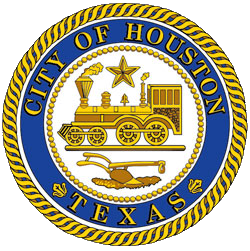HOUSTON – The City of Houston has activated its Public Health Heat Emergency Plan. The National Weather Service issued a heat advisory expected to remain in effect for Houston until 7 p.m. Thursday and additional advisories are possible through the weekend.
Anyone living without air-conditioning can seek air-conditioned shelter at Houston Health Department (HHD) multi-service centers, designated as cooling centers. People without adequate transportation to a cooling center can call 3-1-1 to request a free ride from METRO.
The city will extend the hours of operations for the following facilities until 6 p.m. on Thursday and Friday and open them to the public from 12 p.m. to 6 p.m. on Saturday and Sunday:
- Sunnyside Multi-Service Center, 9314 Cullen Blvd., Houston, TX 77051
- Acres Homes Multi-Service Center, 6719 West Montgomery Rd., Houston, TX 77091
- Northeast Multi-Service Center, 9720 Spaulding St., Houston, TX 77016
- Magnolia Multi-Service Center, 7037 Capitol St., Houston, TX 77011
The downtown Houston Central Library, Jesse H. Jones Building, 500 McKinney St., Houston, TX 77002, will open 10 a.m. to 6 p.m. Saturday and from 12 p.m. to 6 p.m. on Sunday.
A heat advisory is issued when the heat index, a computation of the air temperature and humidity, reaches 108 degrees on two consecutive days.
HHD urges everyone to take extra precaution to protect themselves from heat-related illness and death. Fifteen people in Houston and Harris County died due to heat-related illnesses in 2018.
High-risk groups such as adults age 55 and older, children under the age of five and people with chronic illness are urged to stay inside air-conditioned buildings between 1 p.m. and 5 p.m., the hottest part of the day.
To prevent to prevent heat-related illnesses, HHD recommends people:
- Increase water consumption. Drink lots of liquids even before getting thirsty, but avoid those with caffeine, alcohol or large amounts of sugar because these can result in the loss of body fluid.
- Conduct outdoor work or exercise in the early morning or evening when it is cooler. Outdoor workers should drink plenty of water or electrolyte replacement beverages and take frequent breaks in the shade or in an air-conditioned facility. Those unaccustomed to working or exercising in a hot environment need to start slowly and gradually increase heat exposure over several weeks.
- Wear light-colored, loose fitting clothing that permits the evaporation of perspiration.
- Do not leave children, senior citizens or pets unattended in a vehicle.
- Use a wide-brimmed hat to help prevent sunburn as well as heat-related illness. Sunscreen also protects from the sun’s harmful rays and reduces the risk of sunburn.
- Seek accommodations in air-conditioned facilities during the heat of the day if a home is not air-conditioned: multi-service centers, malls, movie theaters, libraries, etc.
- Take frequent cool baths or showers if their home is not air-conditioned.
- Stay alert to heat advisories. A heat index of 108 is a potential health threat for all people and is particularly dangerous for high-risk groups.
Heat exhaustion, usually associated with heavy activity, is the body’s response to an excessive loss of water and salt contained in sweat. Signs include profuse sweating, paleness, muscle cramps weakness, dizziness, headache, nausea or vomiting, a weak-but-rapid pulse and fainting. The skin may be cool and moist. If heat exhaustion is untreated, it may progress to heat stroke.
Heat stroke occurs when the body’s temperature rises rapidly, the perspiration system fails and the body is unable to cool down. Body temperature may rise to 106°F or higher within 10 to 15 minutes. Heat stroke can cause death or permanent disability if emergency treatment is not provided.
Heat stroke symptoms include an extremely high body temperature (above 103°F, orally), red, hot and dry skin (no sweating), rapid and strong pulse, throbbing headache, dizziness, nausea, confusion and unconsciousness.
Staying indoors, preferably in an air-conditioned home or building such as a library, shopping mall or multi-service center, is the best protection against the heat. Electric fans may provide comfort, but when the temperature is in the high 90s, fans without refrigerated air only spur the movement of hot humid air, which will accelerate body heating and raise internal body temperature. Taking a cool shower or bath or moving to an air-conditioned place is a much better way to cool off.
Visit www.houstonemergency.org for additional heat-related illness prevention tips and a complete list of city facilities.
